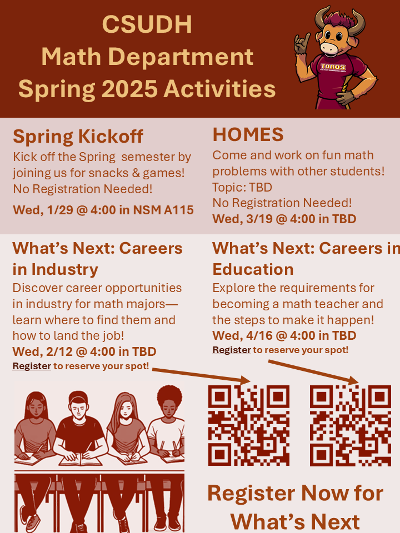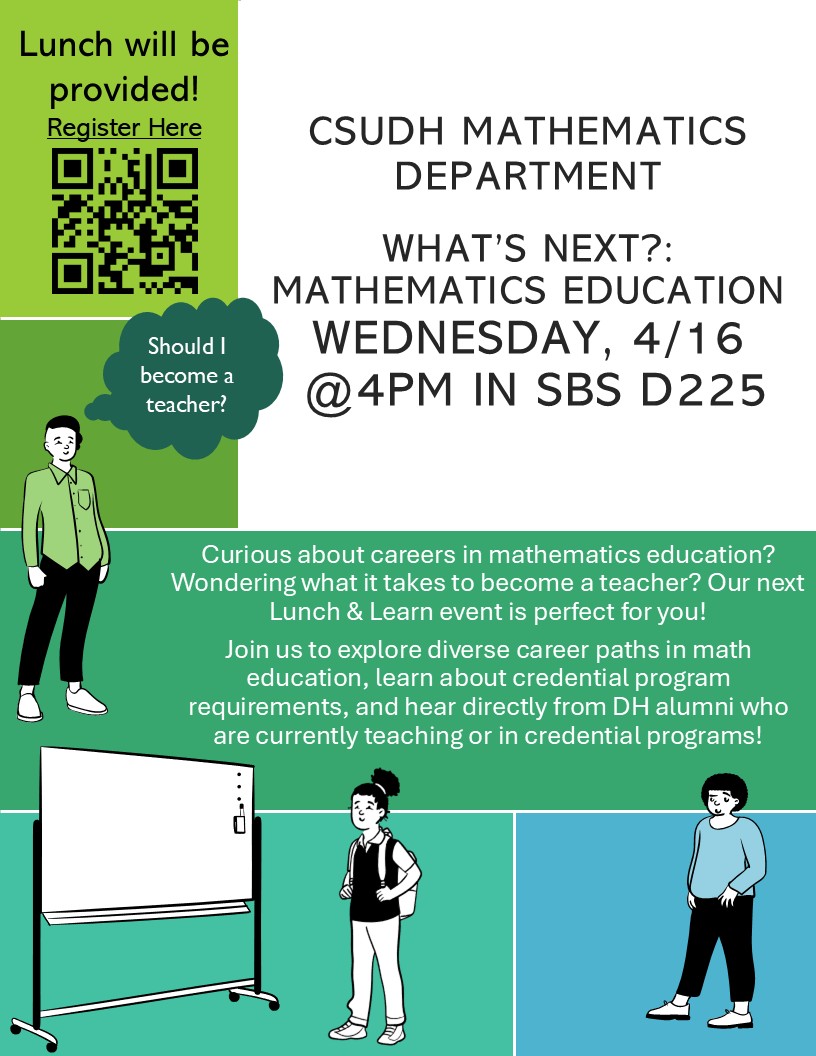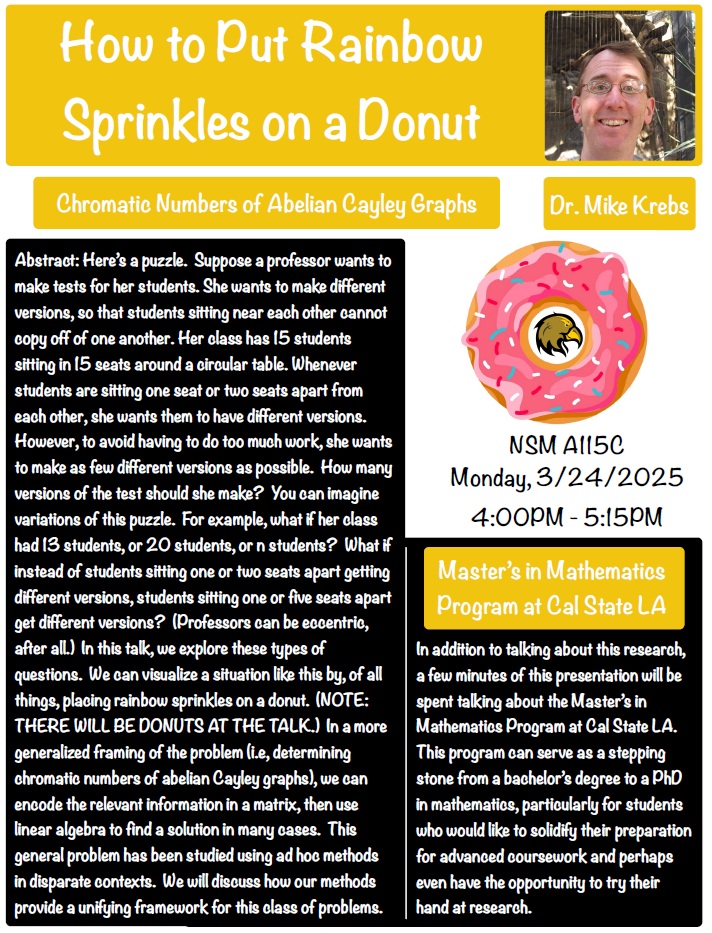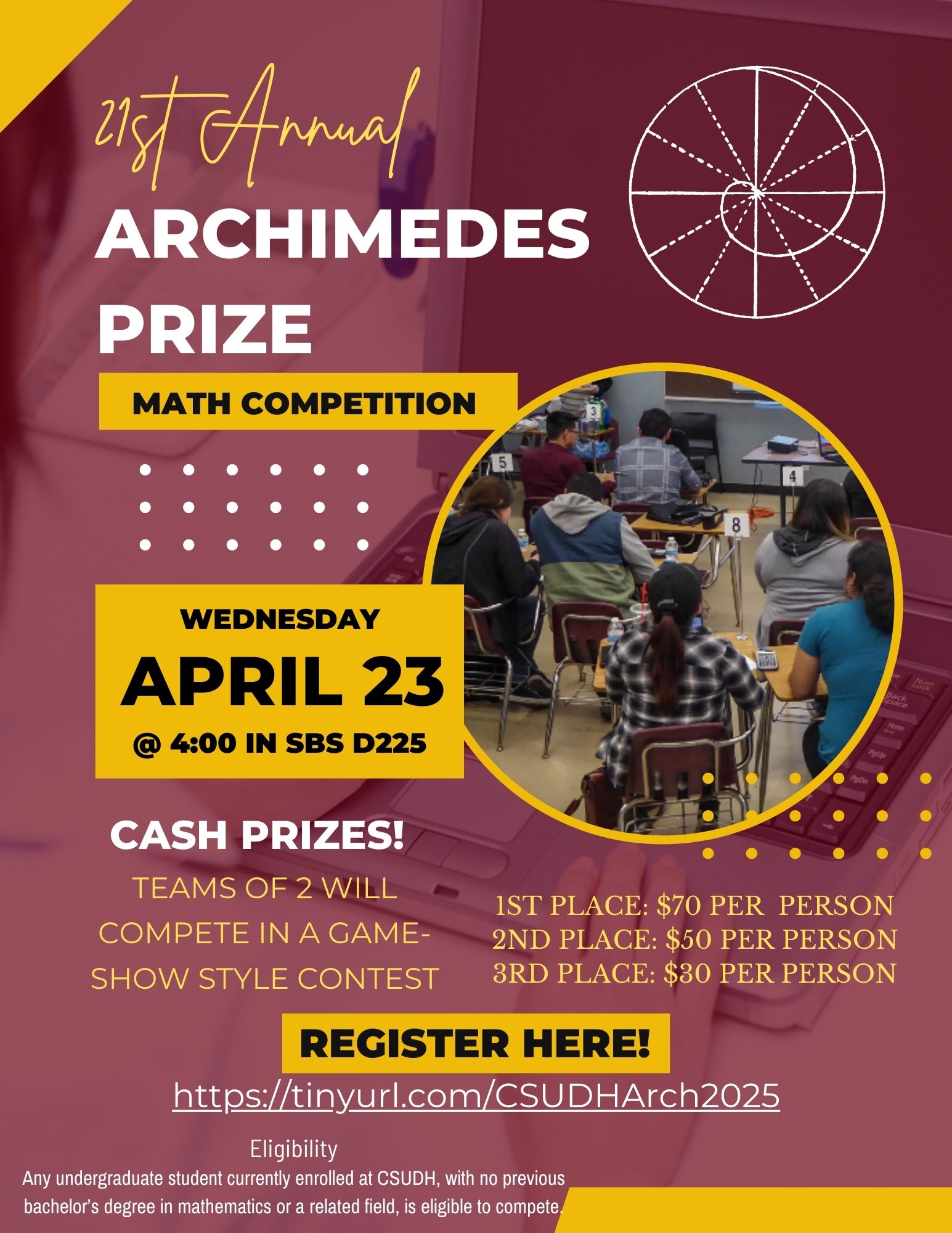Mathematics
Latest News
Math Department Events, Spring 2025




Math Club Talk: How to Put Rainbow Sprinkles on a Donut (and Info about Cal State LA's Master's in Mathematics Program) with Dr. Mike Krebs, Cal State LA - Monday, March 24, 2025 @ 4:00 PM in NSM A115
Suppose a professor wants to create different versions of a test so that students sitting near each other cannot copy. With 15 students seated in a circle, she wants to minimize the number of versions while ensuring that students one or two seats apart receive different tests. This puzzle leads to broader mathematical questions: What if there are n students? What if different seating constraints are imposed? Surprisingly, this problem can be visualized by placing rainbow sprinkles on a donut and mathematically modeled using chromatic numbers of Abelian Cayley graphs. By encoding the constraints into a matrix and applying linear algebra, we develop a unifying framework to solve these types of problems, which have previously been approached with ad hoc methods. (And yes, there will be donuts!) Dr. Krebs will also have information on the Master's in Mathematics Program at Cal State LA.
HOMES Lunch and Learn: Careers in Education - Wednesday, April 16, 2025 @ 4:00 PM in SBS D225
Are you passionate about math and helping others? A career in education might be a good fit for you! The path to get there varies by level but generally includes earning a math-related bachelor's degree, completing a teacher preparation program, and obtaining certification for K-12 teaching. For college-level teaching, a master's or Ph.D. is usually required.
Graduate school in education, including math education research, can deepen your understanding of teaching methods, curriculum design, and equity in math learning. Whether through student teaching, tutoring, or research, gaining experience along the way will help you develop the skills to be an effective educator.
Click here to register!
21st Annual Archimedes Prize Math Competition - Wednesday, April 23 @ 4:00 PM in SBS D225
Teams of two compete in a gameshow style contest for cash prizes!
Click here to register!
Math Club
About the Math Department
Mathematics is about number operations and algebra, motion and change (calculus and differential equations), logical analysis, scientific visualization, structure and geometry, the prediction of random events (probability), the extraction of useful information from large sets of data (statistics), and the discovery of the best ways to do things (optimization). It is abstract and theoretical, and intensely down-to-earth and practical, all at the same time.
The mathematics major and minor prepare students for exciting and rewarding work in industry, careers in teaching, and for advanced post-baccalaureate study.
Our calculus, differential equations, analysis, and probability and statistics courses enable science students to analyze data and predict outcomes in static and dynamic situations.
Our foundations, discrete math and algebra courses give students the tools they need for rigorous logical and structural analysis and a deep conceptual understanding of quantitative situations.
Our mathematics education courses prepare students to be outstanding teacher leaders with a deep knowledge of mathematics and the best practices in teaching.
Our general education courses give the general student the mathematical background she or he needs to function in life as an educated and informed citizen in an increasingly quantitative and data-driven world.
The Mathematics Department makes every effort to offer its courses at times that are convenient for students.